 In a recent volume Khodadad Kaviani, associate professor at Central Wahington University, defines Khayyaamism as “a particular worldview that (l) questions the legitimacy of religious practices and beliefs that are contrary to reason; (2) views death as part of life; (3) promotes the enjoyment of life here and now; (4) values camaraderie and friendship; and (5) expresses ideas in short poems.” As a young man, Kaviani left his country in 1979, and had to find his way in the USA. Reading Iranian poetry helped him to stay in touch with his cultural roots, and in Khayyaamism, he would find advice on “how to be a friend, what to do with money, why religion is not all that’s cracked up to be, and much more.”
In a recent volume Khodadad Kaviani, associate professor at Central Wahington University, defines Khayyaamism as “a particular worldview that (l) questions the legitimacy of religious practices and beliefs that are contrary to reason; (2) views death as part of life; (3) promotes the enjoyment of life here and now; (4) values camaraderie and friendship; and (5) expresses ideas in short poems.” As a young man, Kaviani left his country in 1979, and had to find his way in the USA. Reading Iranian poetry helped him to stay in touch with his cultural roots, and in Khayyaamism, he would find advice on “how to be a friend, what to do with money, why religion is not all that’s cracked up to be, and much more.”
Khayyám’s short poems may serve as a vehicle for readers to take a more critical view of issues and values that each new generation has to discover and to discuss. In order to do so, Kaviani provides a method to study the quatrains. Each verse is given in Persian, followed by a translation into English. Next, under the headings “Conversation starter” and “Dig deeper” a varying number of questions is posed for the reader to answer.
In this respect, it is irrelevant to dwell on the question whether Khayyám did really write these verses, “because his poetry represents a way of thinking about life (…), a worldview that opposes religious control over people’s lives and promotes living a full life here and now, in a simple way that brings joy to the person and others.”
Although the methodical approach may seem a bit schoolmasterish (there is a chapter “Note to teachers” with rather strict instructions), it is a brave attempt to make our troubled world a better place to be.
Rethinking khayyaamism. His controversial poems and vision. Khodadad Kaviani. Lanham etc., Hamilton Books, 2014. xii, 131 p. ISBN: 9780761864066.
 French novelist and essayist Renaud Mercier published a versified adaptation of the quatrains from the Bodleian manuscipt, based on the edition by Edward Heron-Allen of 1898. In a short introduction the translator explains why the rhyme scheme has been altered to AABB, which means that there is no ‘free’ third line, as not to discomfort French ears.
French novelist and essayist Renaud Mercier published a versified adaptation of the quatrains from the Bodleian manuscipt, based on the edition by Edward Heron-Allen of 1898. In a short introduction the translator explains why the rhyme scheme has been altered to AABB, which means that there is no ‘free’ third line, as not to discomfort French ears.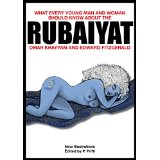 That Omar Khayyám definitely has gone digital may be a surprise to no one. The digital versions of editions and critial works that are out of copyrights abound since years. More recently we see a steady flow of new rubáiyáts in various formats of ebooks: DjVu, ePub, eReader, iBook, pdf and many others.
That Omar Khayyám definitely has gone digital may be a surprise to no one. The digital versions of editions and critial works that are out of copyrights abound since years. More recently we see a steady flow of new rubáiyáts in various formats of ebooks: DjVu, ePub, eReader, iBook, pdf and many others.
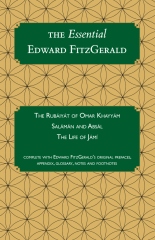 This is a newly published e-book with the main versions of FitzGerald’s translation of the Rubáiyát of Omar Khayyám, (the first, second and fifth), and his translation of Jámí’s Salámán and Absál. The work includes all the original notes and prefaces, together with an Appendix, Glossary and Endnotes.
This is a newly published e-book with the main versions of FitzGerald’s translation of the Rubáiyát of Omar Khayyám, (the first, second and fifth), and his translation of Jámí’s Salámán and Absál. The work includes all the original notes and prefaces, together with an Appendix, Glossary and Endnotes.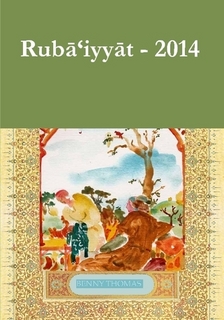
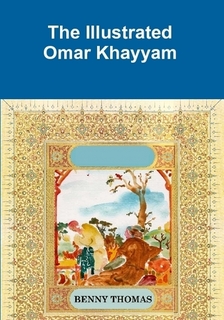

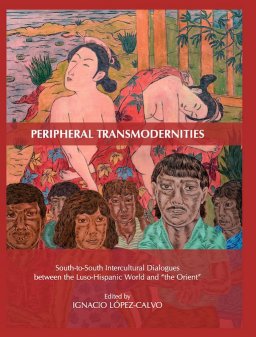 In “Otras inquisiciones, 1937-1952” (1952) the famous Argentinian author Jorge Luis Borges published a short essay “El enigma de Edward FitzGerald”, in which he suggests that Omar might be reincarnated in Edward FitzGerald. In his earlier work “Inquisiciones” (1925) Borges also wrote a short essay called “Omar Jaiyám y FitzGerald” in which he refered to a translation to Spanish of a number of quatrains of Omar Khayyám by his father, Jorge Guillermo Borges (1874-1934). This reference to his father was left out in the later Inquisiciones of 1952.
In “Otras inquisiciones, 1937-1952” (1952) the famous Argentinian author Jorge Luis Borges published a short essay “El enigma de Edward FitzGerald”, in which he suggests that Omar might be reincarnated in Edward FitzGerald. In his earlier work “Inquisiciones” (1925) Borges also wrote a short essay called “Omar Jaiyám y FitzGerald” in which he refered to a translation to Spanish of a number of quatrains of Omar Khayyám by his father, Jorge Guillermo Borges (1874-1934). This reference to his father was left out in the later Inquisiciones of 1952.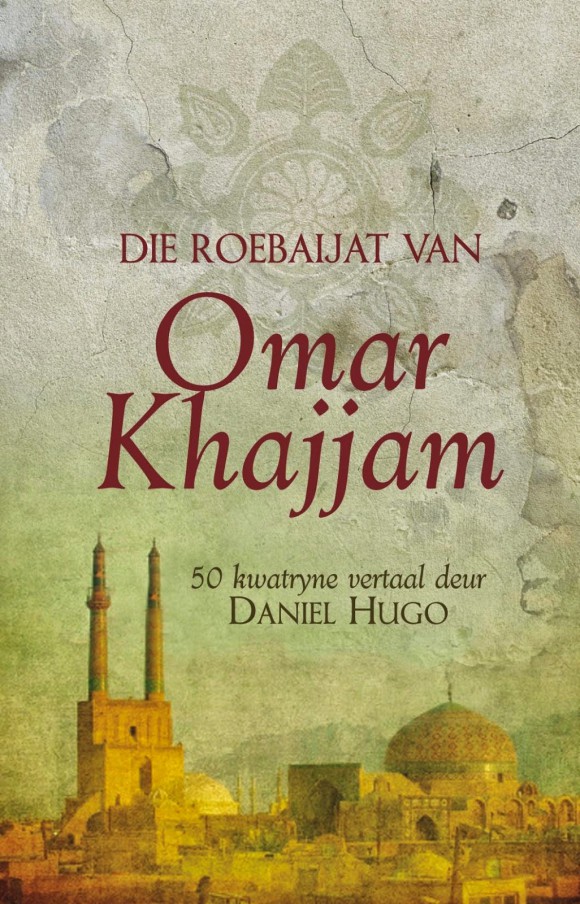 A new translation of the Rubáiyát into Afrikaans was recently published in Pretoria, South Africa, by Proteia Boekhuis. Daniel Hugo, poet and critic, selected fifty quatrains from FitzGerald’s version, which he declares essential, the rest being reiterations. Long ago Hugo was struck by the translation of the Dutch poet J.H. Leopold, when he was a student. Now, forty years later, this resulted in a new publication called Die roebaijat van Omar Khajjam. 50 kwatryne vertaal deur Daniel Hugo.
A new translation of the Rubáiyát into Afrikaans was recently published in Pretoria, South Africa, by Proteia Boekhuis. Daniel Hugo, poet and critic, selected fifty quatrains from FitzGerald’s version, which he declares essential, the rest being reiterations. Long ago Hugo was struck by the translation of the Dutch poet J.H. Leopold, when he was a student. Now, forty years later, this resulted in a new publication called Die roebaijat van Omar Khajjam. 50 kwatryne vertaal deur Daniel Hugo.